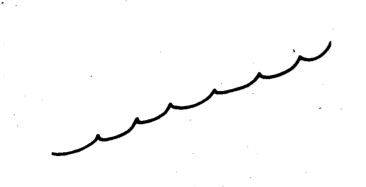If I do nothing in life then I have nothing to write about. And for the past few days I have done nothing, so I’m going to write about it.
In George Leonard’s book, Mastery, he talks about the ‘quick-fix’ culture that he saw developing more than two decades ago. I think we’re now living at the peak of this culture and many of us are subjected to the ‘quick-fix’ mentality, myself included. So part of the reason why I have been doing nothing these past few days is because of this mentality. There are things that I want to achieve, but I lack the willingness to start or continue.
This reminds me of the opponent process theory of emotion, a psychological theory that explains why pleasurable things can turn to addictions (like drugs) and why initially stressful things can turn into pleasurable things (like bungee jumping).
Have you ever seen someone queue up for Stealth for an hour, only to back away at the last minute? This is when the initial stress response becomes greater than the expected reward. I think this happens because of over-thinking. It usually happens at the front of a queue because that’s when you see the ride. It acts as a trigger for more thoughts that makes you focus only on the stress. For the past few days I have perceived my ‘initial stress response’ of carrying on with my projects as greater than my expected rewards. I know that the longer I keep doing this, the harder it will get to reverse it, so I am writing this post.
Leonard describes the path to mastery with this graph:

He compares it to the graph he calls the ‘path of endless climax,’ which is impossible to achieve, and inevitably leads to a crash. Yet it is the graph that everyone is led to believe exists, from movies to advertisements and the way patients are treated in hospitals.

Now with my projects, namely building a cabin, I don’t think I want to become a master cabin builder. However Leonard describes mastery as a path, and to become a master cabin builder implies an end result, which mastery is not. Therefore I can still follow the path of mastery in building a cabin, and I probably should if I want to build a good cabin, and enjoy doing it.
But what exactly is the path of mastery? Leonard describes it as maintaining a particular mindset while working on your craft. It is what I explained in my first post on building a cabin, where building a cabin is a goal in and of itself. Leonard calls it ‘loving the plateau.’ This helps in changing my initial ‘quick-fix’ mentality because I understand now that these plateaus occur everywhere, and what I need to do is not to give up, but not to fight through it either – I have to love the plateau.
How do I love the plateau? I’m not sure yet, I have to finish the book.
Leave a Reply